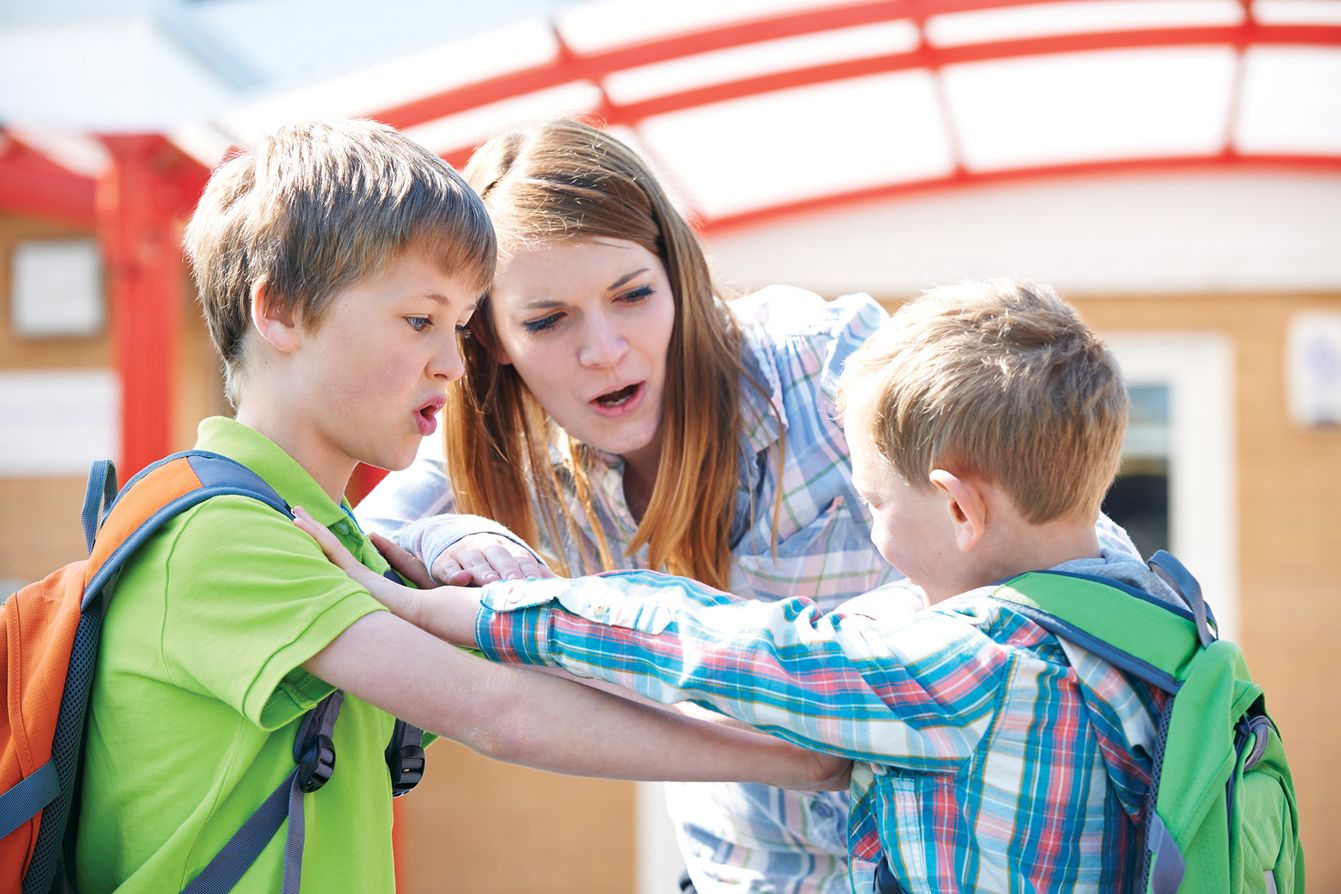It’s one thing to discipline your own child, but would you ever step in to tell another child off if what they’re doing is impacting your kid? Two mums share their views.
Would…
Cliff Battley
Gold Coast, Queensland
Yes, I think parents can discipline another parent’s child but you have to understand what discipline means—showing them what they did wrong and how they are going to get it right—and you have to do it in a way that is prosocial and helps a child to become a better human.
Also, it’s really important that parents understand about age-appropriate behaviour. When it gets to kids who are older, who are able to differentiate between what is wrong and right, the first thing you always need to ask is if you are disciplining one child based on what the other child said, because parents have a tendency to want to believe their own child. So it’s really important that you are fair if you’re going to implement some sort of discipline.
If it’s not dangerous behaviour, make them play apart for five minutes while they think about how to treat each other. When they come back together, have a chat about how they can get along for the rest of the day.
If it’s dangerous, your job as a parent is to remove your child from the danger. The second thing is to talk to the offending child, telling them it’s not OK and explaining why. Help the child come up with a solution to the situation. All children want to do is play and hang out together.
Discipline comes down to consequences and one of the biggest ones you can give a child is to withdraw attention or social connection (for example, removing your child as their playmate). When you do so, you have actually disciplined the child in a way the other parent can’t be upset about.
Read: To the parent of the child who hurt mine
Would not…
Dr Karen Phillip
Sydney, New South Wales
No, we should never discipline another person’s child. Saying that however, you can certainly suggest to the other parent that their child could approach an issue or handle an event in a different manner, while always stepping in to protect your child if they are young or vulnerable.
If the other child is being loud or obnoxious, particularly toward your child, then this is different. A gentle interaction with the children requesting they play nicely together is fine and, if the other child is challenging or unwilling to comply, lead your child away or remain on guard. Stop the other child if they are attacking or hurting your child, but do this mindfully and respectfully, understanding the child is unlikely to know any better. Hopefully the other parent will notice and respond appropriately.
A child displaying regrettable behaviour while a parent is present is challenging for all. If and when the child’s parent addresses you, smile and comment on all the kids’ (yours included) challenging behaviours.
Always provide two options for the other parent to choose from as this can avoid any escalation of conflict, helping the parent to own their choice.
Children have good and bad days, just like adults. The child’s brain isn’t developed enough to understand consequence for any behaviour. Remember, it isn’t the child who is bad, it is their current behaviour and it is always an opportunity to guide, suggest and support other parents who may be struggling on that day, as we may also do at times.
How helpful was this article?
Click on a star to rate it!
0 / 5. 0
Be the first to rate this post!
Mums At The Table
Related posts
Subscribe
Receive personalised articles from experts and wellness inspiration weekly!


